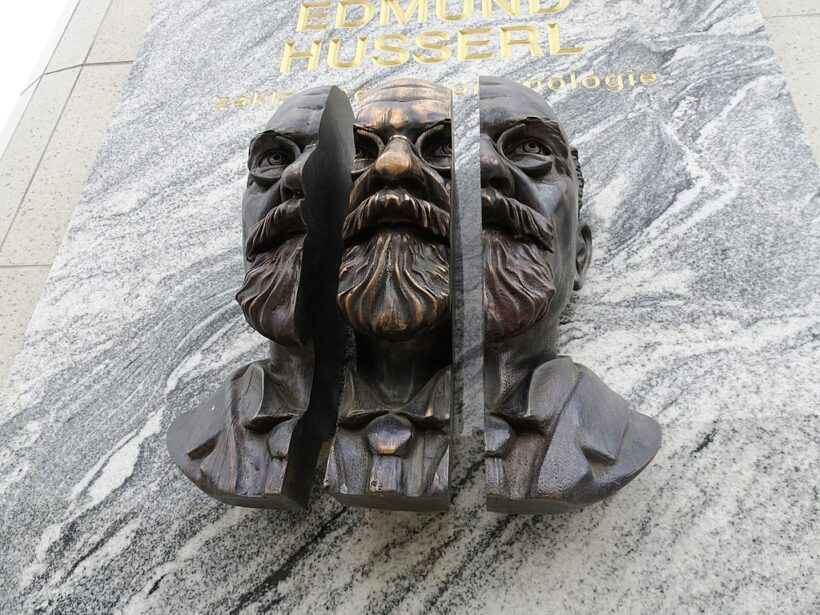Edmund Husserl was born on 8 April 1859 in Prostějov, then part of the Austro-Hungarian Empire and now in the Czech Republic.
Husserl is known as the founder of phenomenology, a philosophical trend that seeks to study and describe the structure of experience as it presents itself directly, without presuppositions or interpretations.
By doing so, the philosopher argued, we could arrive at a deeper understanding of the structure and nature of consciousness and, by extension, of reality itself.
Epojé’, a key element of Husserl’s phenomenology, is a concept that refers to the suspension or bracketing of our beliefs and presuppositions about objective reality. It is a mental exercise in which we temporarily set aside our preconceived judgments and opinions about the external world to focus exclusively on the description and analysis of phenomena as they present themselves to our consciousness.
Epojé allows us to explore the structure and content of our experience more directly, without being influenced by our prior beliefs. It is a fundamental step in the phenomenological method, as it seeks to ensure that our description of experience is as unbiased and objective as possible, focusing on the “thing itself” (the phenomenon) as it appears in our consciousness.
Among the many works the thinker wrote during his lifetime, one of the most important and influential was the Logical Investigations, first published in 1900-1901, which is considered the first major treatise on phenomenology and sets out many of Husserl’s fundamental ideas on epoch, intentionality, and phenomenological reduction.
Ideas for a Pure Phenomenology and Phenomenological Philosophy, published in 1913, is also one of his major works.
In 1936, he published “The Crisis of European Science and Transcendental Phenomenology”, a book that addresses the crisis of modern science and argues for the need for a new philosophical foundation based on transcendental phenomenology.
One of his most prominent students was Martin Heidegger, who developed his existential philosophy out of Husserlian phenomenology. Although initially close to Husserl, Heidegger later criticized phenomenology for not getting to the root of the question of being.
Another great thinker who drew on Husserl’s ideas was Jean-Paul Sartre, one of the leading exponents of existentialism. However, Sartre criticized the Husserlian notion of consciousness as something that can be separated from its world, arguing that consciousness is always implicated in the world and action.
Husserl had a profound influence on 20th-century thought, and his work has had a significant impact on fields such as philosophy, psychology, sociology, and literary theory, among others.
We owe him essential traces for understanding the inner workings of human consciousness, which is characterized by intentionality. The celebration of his birthday invites us to look beyond our prejudices and take a closer look at ourselves.










